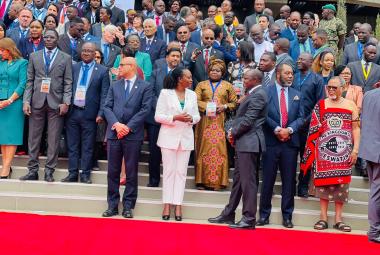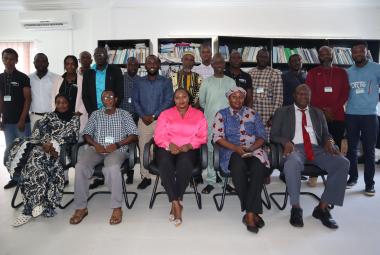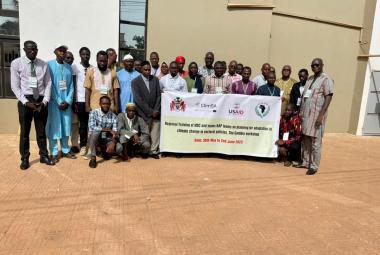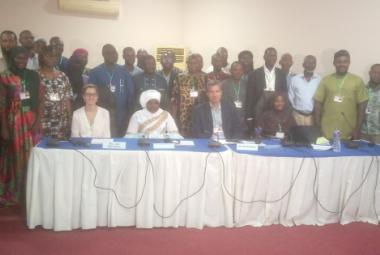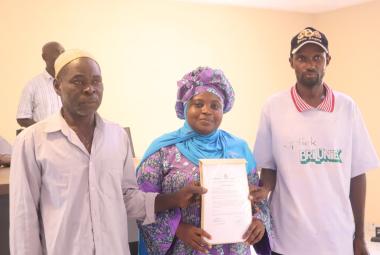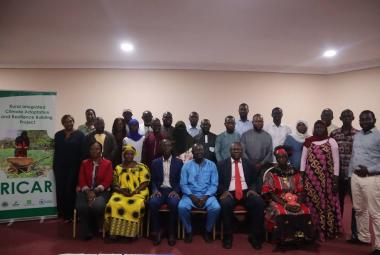To improve access to climate information services to rural communities, the Ministry of Environment, Climate Change and Natural Resources, through the Rural Integrated Climate Adaptation and Resilience Building Project (RICAR), in collaboration with the World Food Programme, concluded a 4– day capacity building programme for agricultural extension workers, traditional communicators, and selected women and youth change agents on effective communication of climate information services and products in Central River Region and Upper River Region respectively.
The training aimed to equip the participants with the requisite knowledge and skills to be able to communicate climate information products and services to the farming communities in a user-friendly way such as translating the forecast into agricultural advisories tailored to farmers’ specific needs and assisting in the dissemination of the 2023 seasonal forecast. The training was also meant to strengthen the Climate Services for Agriculture (CSA) and provide farmers and communities within the Adaptation Fund Project intervention sites with climate information to help them better prepare for climate risks, thereby complementing the Department of Water Resources in its effort to disseminate timely climate information to users.
In her statement, the National Project Coordinator, Mrs Aji Oulaye Njie-Sowe said the RICAR project intends to take a step in advancing advocacy and exposure to climate information services. “These are largely integral in achieving global SDGs and national development targets by building upon knowledge systems to adequately address the needs of the poor, including information for agricultural decision-making in rural communities to reduce malnutrition and facilitate disaster preparedness.’’
The Director of the Department of Water Resources, Mr. Lamin Mai Touray, revealed that the National Framework for Climate Services for The Gambia is the country’s response to the declaration of the third World Climate Conference held in Geneva in 2009.
He further revealed that this brought about the establishment of a coordination framework that will allow the provision of meteorological and climate information adapted to the needs of users, and the ability to reach end-users to better inform their decision-making, both at the national, regional, and community levels.
‘‘This initiative is expected to reduce the huge human and financial losses in The Gambia that stem from climate-related disasters (floods, droughts, strong winds, heat waves, etc.), and take advantage of prevention opportunities, which limits adverse effects of high-impact weather events and climate variability,’’ he said.
Day two of the training in CRR saw an interactive session with newly selected women and youth change agents. These volunteers will serve as the interface between the project and several women and youth-targeted beneficiaries within their communities.
The initiative is a support mechanism for RICAR’s advocacy, outreach, and communication on the climate resilience agenda. The project will work with these change agents through exposure to several activities. They will be trained and empowered to become champions of climate resilience through social and behavioral change.
Highlighting the importance of the training, the Governor of URR, Samba Bah stated that the training is key to the participants as they serve as the advisers to the farmers. He called on the participants to take the training seriously because they are there to serve as the link between the project and the farmers.
RICAR is a 5-year project, funded by the Adaptation Fund. The project seeks to enhance the adaptive capacity of rural populations in The Gambia through support to climate-resilient and diversified livelihoods, including improved access to responsive climate information services.



